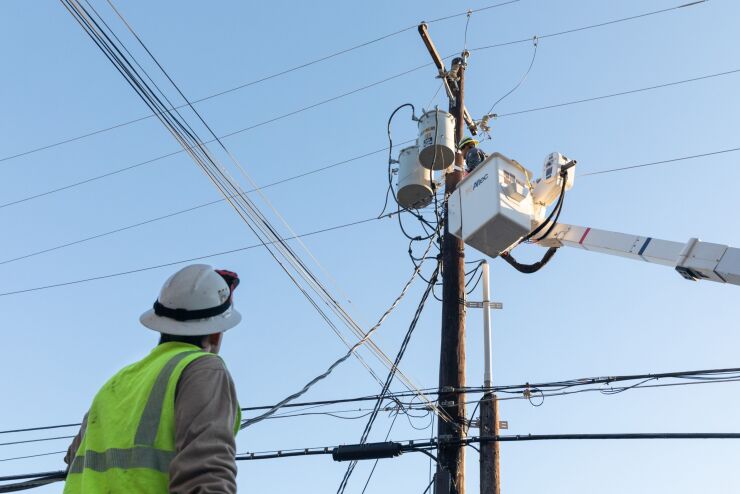As Texas lawmakers launched investigations into the lethal power failures triggered by last week’s
“It’s a disincentive for investment in Texas,” Rep. Rafael Anchia, D-Dallas, said of the calamity in a hearing Thursday in the State Affairs and Energy Resources Committee that he sits on.
At least 60 people died after loss of power that lasted for as long as three days in some parts of the state amid temperatures well below freezing.

Economist Ray Perryman, principal at the Perryman Group in Waco, estimated the long-term losses in gross state product from the event at between $85.8 billion and $128.7 billion, with lost income of $56.8 billion to $85.1 billion.
“These amounts are in the range of (and potentially above) the losses associated with the most expensive weather events in Texas to date, Hurricanes Harvey and Ike,” Perryman said in a report Thursday.
"Tragic does not even begin to describe the suffering Texans endured,” Gov. Greg Abbott said in a statewide address Wednesday. "Many of you are angry — and you have a right to be. I'm angry too. At a time when essential services were needed the most, the system broke. You deserve answers. You will get those answers.”
While Abbott continued to blame the Electric Reliability Council of Texas and dependence on renewable energy, Anchia said Abbott bears a large share of responsibility for failing to prepare for the event.
“There’s been this very carefully curated discussion by the governor to blame ERCOT and never discuss the Public Utility Commission that actually regulates the market,” Anchia said. “You can’t talk about ERCOT without talking about the PUC. That’s the governor’s hand-picked team to regulate this market. They knew as far back as November that there was going to be a severe weather event this winter.”
State Rep. Eddie Lucio III, who spent more than 20 hours without power in his home, chastised local utilities for failure to tell customers what was really happening and how long they could expect to be without power.
"The general public was not afforded the ability to seek safety," the Harlingen Democrat said. "Do not throw up your hands in the future and say, 'Well, we told the PUC.' We could have spoken plainly with Texans and we didn’t."
ERCOT, which is organized as a membership-based 501(c)(4) nonprofit, operates the state’s main electric grid and triggered the rolling blackouts when demand far surpassed supply as power plants and gas supplies were crippled by temperatures that fell below 0 degrees in some parts of the state. Coal- and gas-fired power plants joined wind turbines in failing amid temperatures that — while routine elsewhere — the Texas facilities were not prepared for.
For years, Texas’ Republican leaders have shunned calls from consultants to winterize the state’s power facilities for lower temperatures. Calls for requiring utilities to maintain reserves of power were also resisted in the name of lower rates.
Five of the 16 board members for ERCOT resigned this week after criticism of the grid-operator’s failure. The five were members who live out of state.
On Wednesday, Fitch Ratings placed all retail and wholesale electric utilities operating on ERCOT on Rating Watch Negative following the “potentially severe, but uncertain, financial impact of operating challenges, market dislocation and winter weather on the sector last week.”
The City of Denton had to issue $100 million of commercial paper to finance its purchase of power from ERCOT and said it would still need more revenue to cover costs. Denton’s estimate of $300 million for the week’s power supply was three times what the city bought from ERCOT for all of 2020.

“These higher costs have triggered Fitch's concerns regarding funding requirements and liquidity in the near term, and cost recovery and the potential for increased financial leverage over the medium term for its rated issuers,” Fitch noted.
ERCOT chief executive Bill Magness said the state was “seconds and minutes” from complete energy system collapse, prompting the rolling blackouts.
“If we had allowed a catastrophic blackout to happen, we wouldn’t be talking today about hopefully getting most customers their power back,” Magness said. “We’d be talking about how many months it might be before you get your power back.”
In a report Thursday on the merchant power providers, S&P pointed out that even hedged contracts would have failed to deliver adequate supplies.
“Market signals served no purpose as there was not enough infrastructure and generation online to incentivize a supply response,” S&P said. “Yet, participants are feeling the economic impact of those market signals, partly based on luck. That is the veritable definition of market failure.”





